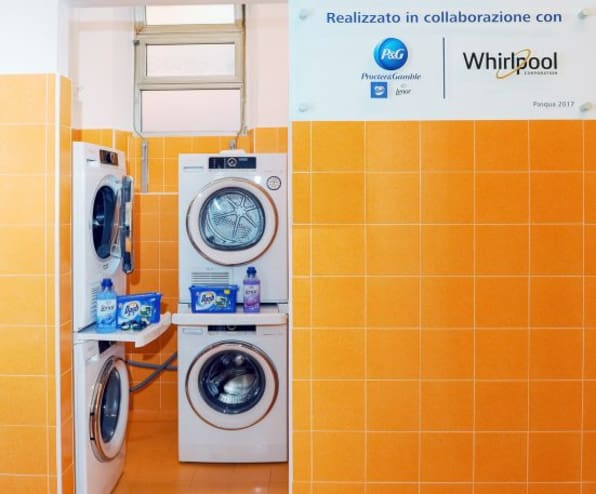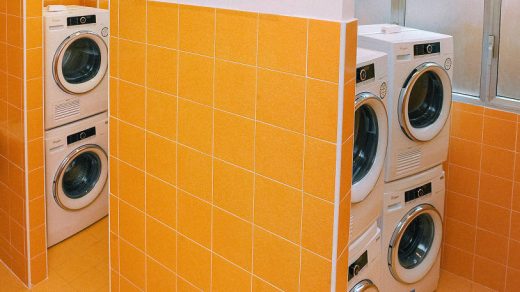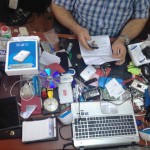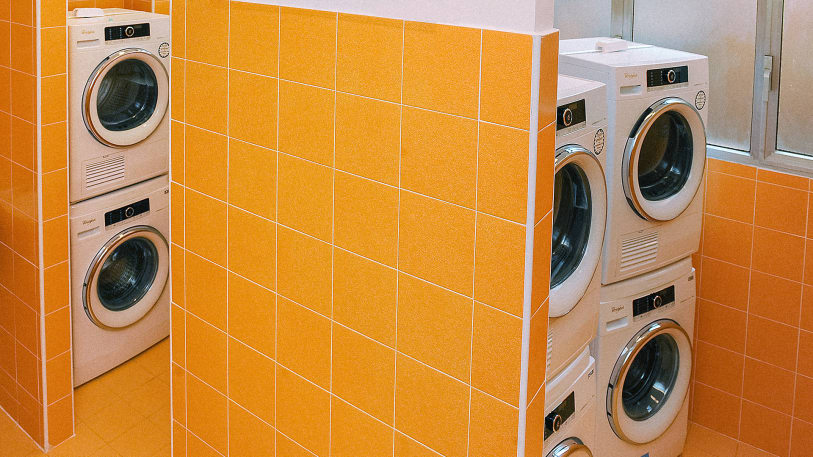The Pope Opened A Free Laundromat For The Homeless In Rome
At a new laundromat in the center of Rome, no one needs quarters. The Pope Francis Laundry–opened by the Pope himself–is a place where homeless people and others struggling with extreme poverty can wash and dry a load of laundry for free.
The laundry is meant to “restore dignity to so many people who are our brothers and sisters,” Archbishop Konrad Krajewski said in a press release from the Vatican. “One of the greatest difficulties for those who live on the streets, along with that of finding food, a place to spend the night and public baths, is to wash and dry the clothes they wear, in many cases the only ones they own.”
Inside a former hospital near the Vatican, run by the Rome-based Community of Sant’Egidio, the facility has six washers and six dryers donated by Whirpool, and a free supply of detergent from Procter & Gamble. A barbershop, showers, and health care facilities will be added on-site later.

It might be the first laundromat opened by a pope, but it isn’t Pope Francis’s first effort to help the homeless. In 2014, for his 78th birthday, the pope handed out 400 sleeping bags, each emblazoned with the Vatican’s coat of arms, to homeless people in Rome. In 2015, he turned a space next to St. Peter’s Square into showers for the homeless and a barbershop that offers free haircuts and shaves on Mondays, and arranged for a homeless man to be buried in the Vatican. In 2016, at the canonization of Mother Teresa, the pope invited 1,500 homeless people to have seats of honor (and free pizza) at a luncheon.
The new laundry is one of a handful of projects that try to address the challenge of clean clothes for homeless people. In the U.S., volunteers from an organization called Laundry Love partner with local laundromats to offer free services at certain hours to people in need. The project started after founders asked a homeless man what he needed, and he said, “If I had clean clothes I think people would treat me like a human being.”
During a Laundry Love session, which typically lasts two to five hours, volunteers either pay for someone’s laundry or, in some cases, the laundromat offers the free use of a machine or two. Other laundromats donate the proceeds from particular machines to the nonprofit. While people wash and dry their clothes, volunteers get to know them, and also often offer services such as tutoring for children or assistance with a job search.
“Dignity is built,” Laundry Love co-founder and national director Greg Russinger tells Fast Company. “Relationships are built…all you have is free time inside a laundromat.” (One of the organization’s supporters, Los Angeles Episcopal Bishop Diane Jardine Bruce, says she shared the idea with Pope Francis, which may have been part of the inspiration for the new Roman laundry).
In Australia, a nonprofit called Orange Sky Laundry engineered a washer and dryer that can fit in the back of a van. Volunteers drive the vans–now a fleet of 11–on streets in Brisbane, Melbourne, Sydney, and other Australian cities, offering homeless people free loads of laundry.
Still, it’s a basic necessity that many people struggle to afford–and may be even more difficult to access for people who are on the verge of homelessness or not yet connected with other homeless services. In the 14 years that Laundry Love has operated, it has seen clear evidence of the need: to date, the program has helped nearly 750,000 people do a million loads of laundry.
“We have a large constituency of people who are going through the wringer,” says Russinger. “They’ve lost jobs, they’ve lost houses, they’re in their cars or low-income hotels, nobody knows about [their homelessness] because if they shared about that, they could lose whatever job they might have. There’s a large constituency of people . . . that most people don’t see and think about. That’s who we see.”
Pope Francis’s new laundry might inspire others to also help. “I just appreciate the fact that he’s jumping on and recognizes that clean clothes matter to people, whoever they are, wherever they come from,” Russinger says. “I think it matters.”
(49)














